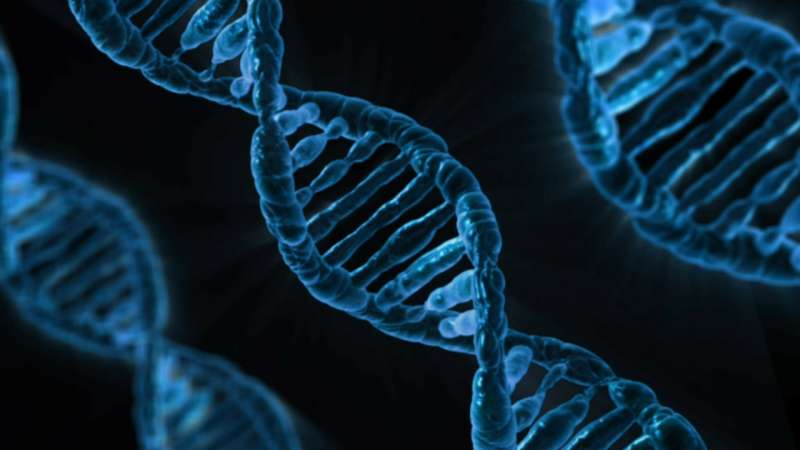Human genome sequences linked to health data will change clinical medicine

The value of intersecting the sequencing of individuals' exomes (all expressed genes) or full genomes to find rare genetic variants—on a large scale—with their detailed electronic health record (EHR) information has "myriad benefits, including the illumination of basic human biology, the early identification of preventable and treatable illnesses, and the identification and validation of new therapeutic targets," wrote Daniel J. Rader, MD, chair of the Department of Genetics, in the Perelman School of Medicine at the University of Pennsylvania, in Science this week, with Scott M. Damrauer, MD, an assistant professor of Surgery at Penn and the Veterans Affairs Medical Center in Philadelphia.
Their commentary accompanies two linked studies on the topic in the same issue. One reports on whole-exome sequencing of more than 50,000 individuals from the Geisinger Health System in Pennsylvania and the analyses of rare variants with data from longitudinal electronic health records. They identified hundreds of people with rare "loss-of-function" gene variants that were linked to observable physiological characteristics, or phenotypes. The second article reports on a study that identified individuals in the same database with familial hypercholesterolemia, many of whom had not been diagnosed or treated.
"These results demonstrate the enormous potential of this approach for promoting scientific biomedical discovery and influencing the practice of clinical medicine," the authors wrote.
Because sequencing ever-larger datasets of human exomes—and full genomes—has become faster, more accurate, and less expensive, researchers can find rare genetic variants more quickly. And then matching these rare genetic finds to EHR phenotype data has the potential to inform health care in important ways.
"Many single-gene disorders like familial hypercholesterolemia [FH] are under-diagnosed," Rader said. "Once an individual with a single-gene disorder is identified, not only can that person be placed on appropriate medical intervention, but we can also screen his or her extended family members to see who else carries the mutant gene and may benefit from preventative approaches." He cites a recent list of 59 "medically actionable" genes, curated by the American College of Medical Genetics and Genomics (ACMG), in which loss of function mutations can lead to specific medical interventions. For example, individuals from the extended family of a person found to have FH who also carry the mutation should have their cholesterol checked and be placed on medication to reduce cholesterol.
"Identifying rare variants can also contribute to our understanding of more common, complex disorders such as Type 2 diabetes or chronic kidney disease," Rader said. "These efforts will one day reveal the fundamental value of what the genome contains for health and disease and pave the way for precision medicine in every clinic and hospital."
More information: "'Pheno'menal value for human health," Science science.sciencemag.org/cgi/doi … 1126/science.aal4573


















